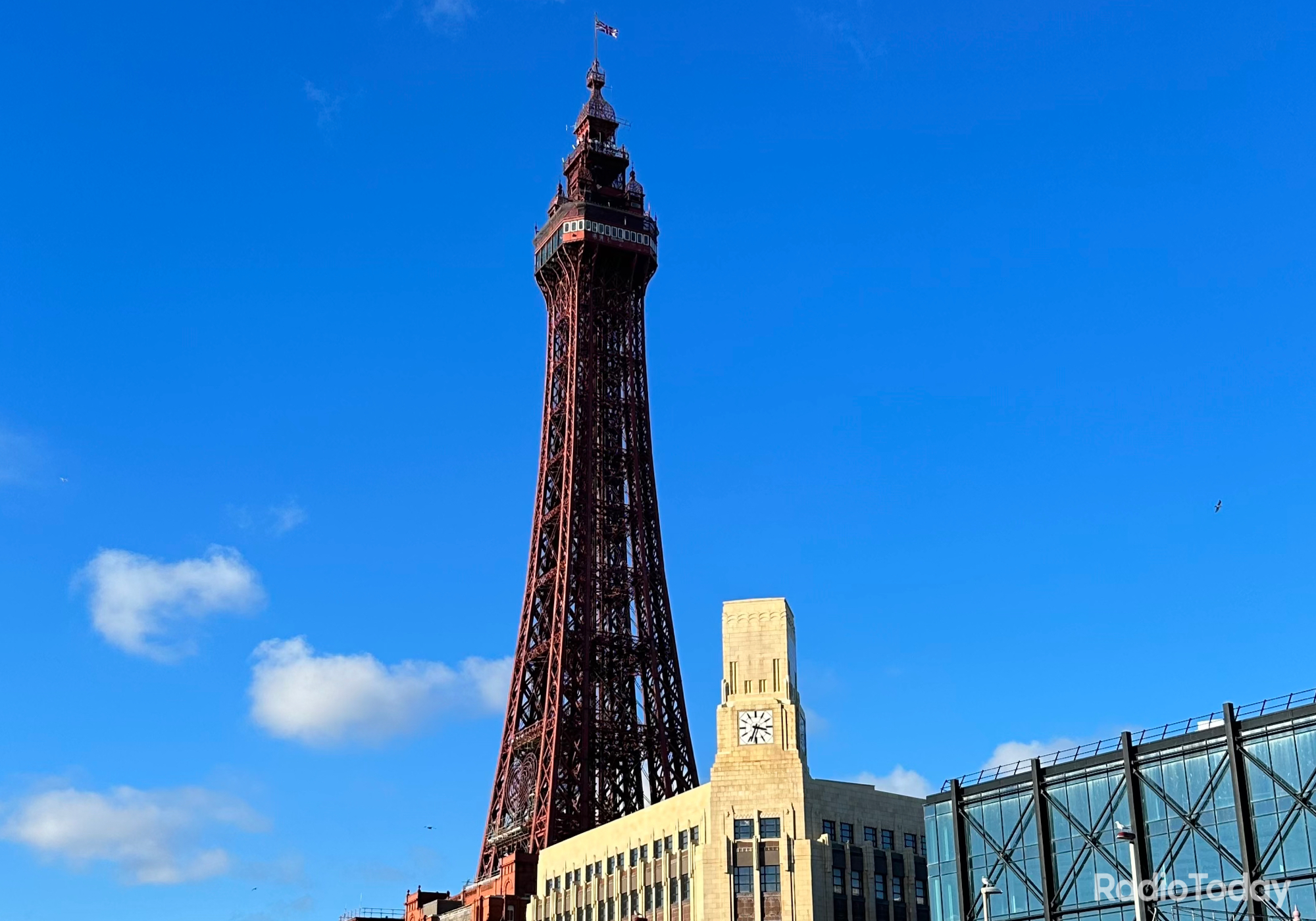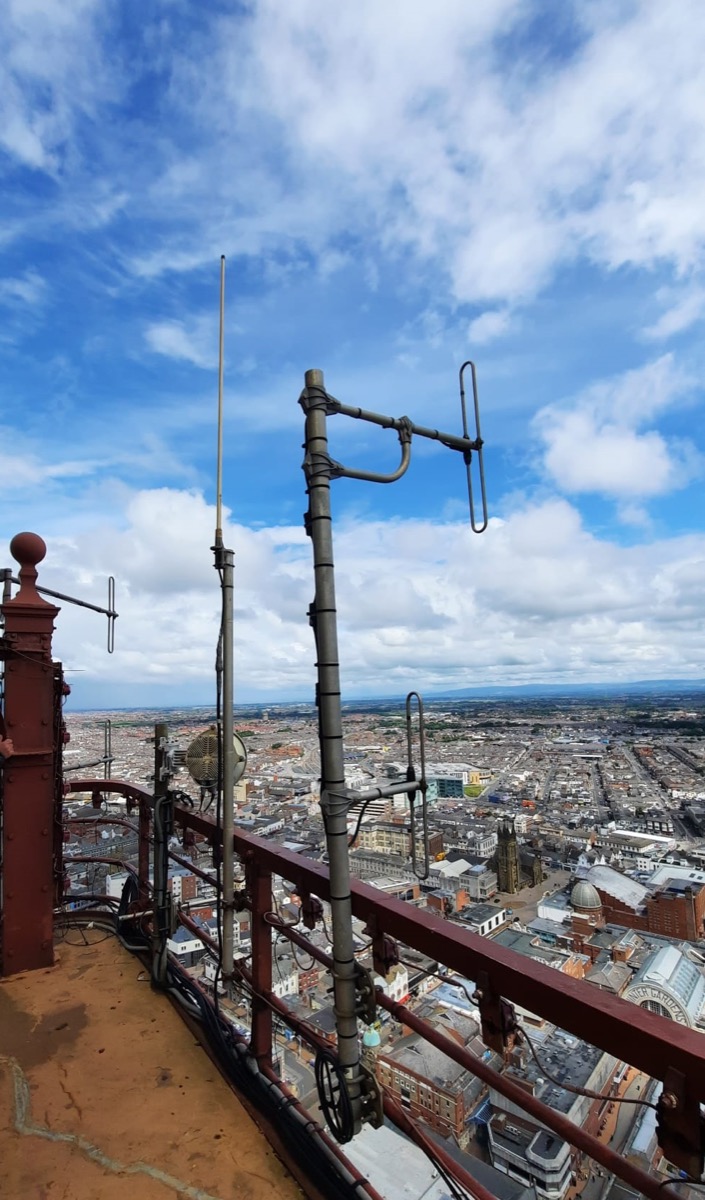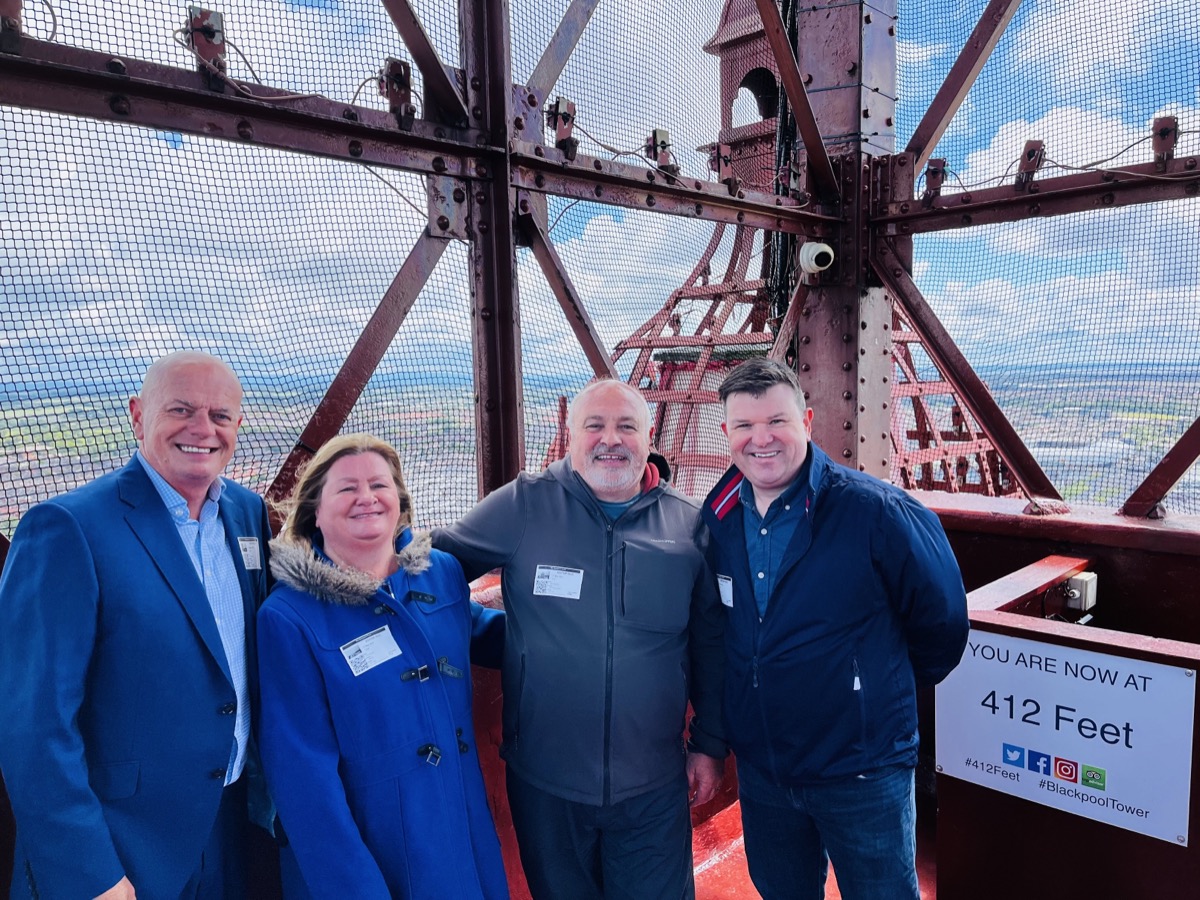
Blackpool’s tower of radio power: One year of small scale DAB radio
Fun Coast Digital Director Alistair Clarke MBE takes a look at small-scale DAB can work well for a community.
Remember the thrill you got when you heard your name on the radio for the very first time?
For me, it was Derek “Mr and Mrs” Batey reading out my song request on the new Red Rose Radio in Lancashire about 40 years ago.
Take that memory as your daily reminder that broadcast radio creates magic; a wow and a sense of wonderment in listeners.
I mention this because in the radio industry we perhaps know too much about the day-to-day goings on with individual stations, with radio groups and audience figures and we’re a bit too quick to arrange the industry in a hierarchy with a big national station like Radio 2 at the top of the pyramid and smaller, community radio stations way down at the bottom.
Radio listeners don’t.
Just like people didn’t know how the magician, the late Paul Daniels cut Debbie McGee in half but she could still wiggle her fingers, radio listeners have little concept of how you’re making a noise in a microphone and, somehow, they can hear it coming out of their radio at home or in their car.
And if the recent commotion over BBC local radio has taught us anything, it’s that great radio thrives on human connection, passion and interesting local information.
I know a thing or two about local radio. Thirty-plus years ago, innovators in Blackpool led by John Barnett MBE DL lobbied the radio authorities with a credible case to show that the resort could sustain its own radio station. The IBA was sceptical but gave the concept of very local radio a try, Radio Wave was born and I was one of the first voices on it at the start of my career. The late, great John Myers at Red Rose Radio took to BBC TV news on Wave’s launch night to tell viewers that it’ll never work. But Radio Wave did engage a local audience and within a few years every town had their own radio station.
Now that I’ve thrown all the radio balls in the air, it leads me on to small-scale DAB multiplexes. Even the name sounds parochial, complicated and easy to ignore. Let’s instead call it one of the biggest innovations in local radio for a generation. There. Now it sounds more interesting. In Blackpool, we’ve banned the word mux. Who wants to work in a company that sounds like the plural of muck?

By harnessing the power of great tech advances, radio professionals – many of whom cut their teeth in local and regional radio – and enthusiasts can reach different groups of people in a close geographical area and, unfettered by layers of management, provide engaging and interesting radio. The magic is back in local radio.
Fun Coast Digital CIC successfully bid to Ofcom to run the digital radio transmitter in Blackpool, was awarded the licence in May 2022 and three months later on September 1st we put the first few stations live on air. One year on, in-car entertainment screens in Blackpool are bursting with 11 locally-broadcast digital radio stations providing an eclectic mix of chat and music.
For the techies, our base carriage is 40kbps. For the non-techs among us, that means the stations we broadcast sound great when they’re coming out of the radio. Oh, and our transmitter is on a rather famous tower in Blackpool and that’s a great talking point. The daily cost to broadcast on our transmitter is less than your coffee on the way into work and sandwich at lunchtime.
Fun Coast Digital is a non-profit organisation. We believe passionately in stimulating this new innovation in radio, and in the people of Blackpool. We don’t have shareholders so in the first year of trading, we have donated a four figure sum to a local social enterprise that pays for community counselling for local people struggling with life; a notional share of profits, investing back into the town because we care.
We have also invested in replacing some hardware to get even better coverage in our allocated area, and many thanks to Ofcom for supporting this.
Our three directors are constantly talking to community groups in Blackpool, St Annes and Fleetwood about how they could have their own radio station. Sometimes, I ring Ofcom on behalf of community groups and get a few answers for them. We’re stimulating, supporting and encouraging this emerging radio form. I want to hear a school radio station, a disability group, a marginalised group or an individual ward in Blackpool like Revoe or Cleveleys, among others, to all have their own broadcast radio station on our transmitter and best utilise the remaining space.

Next, we need meaningful audience research that shows the true impact of this emerging radio market from its starting point and then chart its growth, and exciting talks are ongoing about innovations in gathering this data.
Anything is possible. What if a major brand was to sponsor a whole multiplex and all the stations broadcasting on it carried the brand’s advertising in return for free carriage? I don’t know if that is feasible but let’s explore it.
Personally, I love seeing all the advancements being made in digital radio that Patrick Hannon at World DAB puts forward. The latest figures I saw showed 96% of new cars sold within the European Union last year came with a DAB+ radio, that’s 10 million new vehicles.
Not one of my clients in the first year has said that being on DAB+ is a barrier to people listening to their station.
It’s greener technology. Each station broadcast on our multiplex uses a fraction of the energy needed for a standalone station. Many of the digital stations use cloud and streaming facilities from The Media Site which runs on 100% renewable power.
For those people who lump DAB stations in with internet radio stations and streaming services, I disagree. Why? Because broadcast radio is special. It has the magic, the thrill, the wow of coming out of an actual radio, even if people then choose to listen online or via an app on their phone.
As digital radio grows not every station or multiplex will be a success but I strongly believe that we’re creating a radio form of the future and, in the words of Kylie and Robbie ‘jump on board, take a ride’.
Alistair Clarke MBE – Director, Fun Coast Digital CIC, Blackpool.

